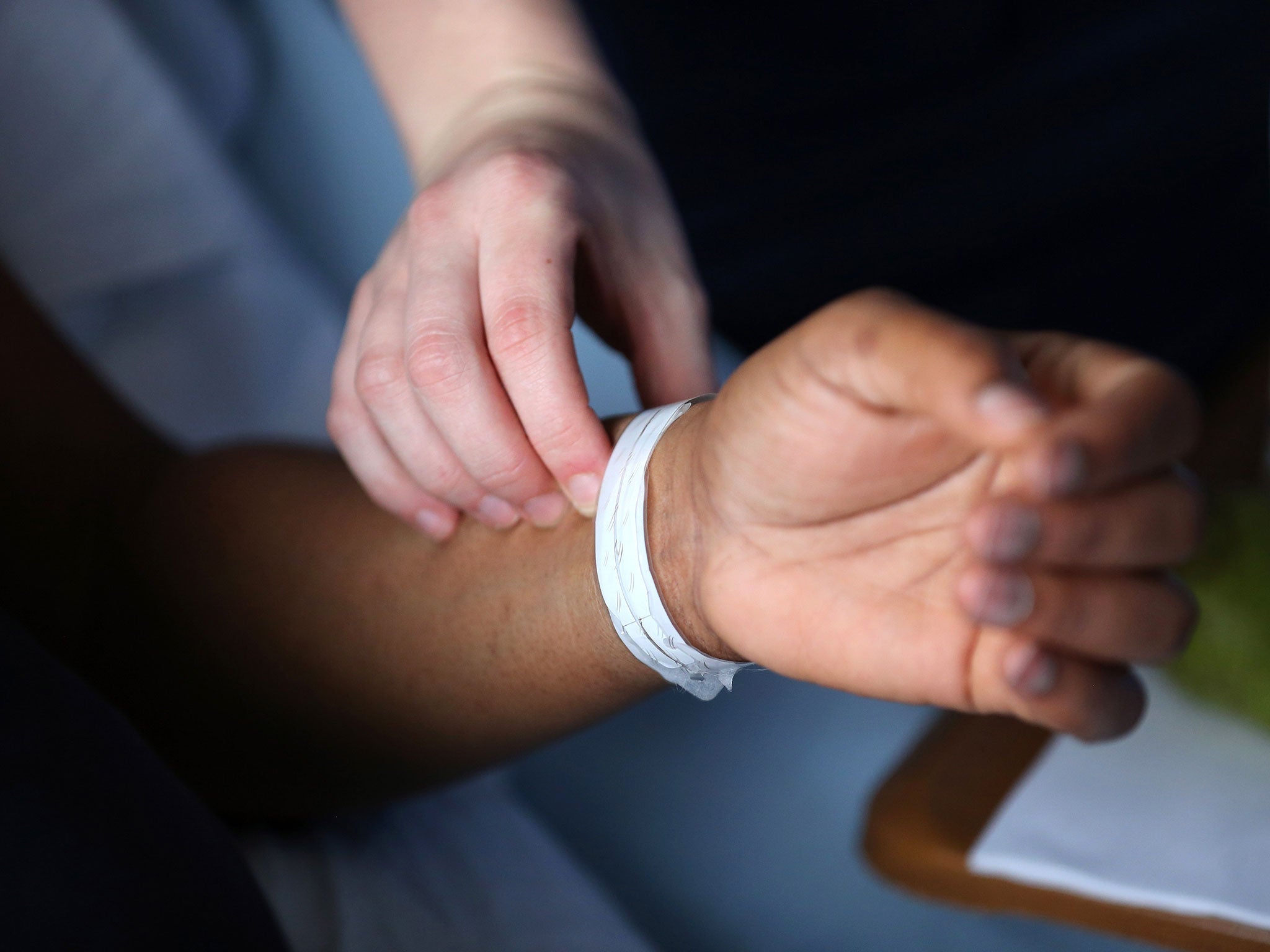Doctors 'more likely to misdiagnose patients' if they are 'difficult'
Study finds patients who obstruct clinicians' efforts by being aggressive increase chance of misdiagnosis by 42%

For those with the misfortune to fear they are in the grip of a serious illness, there is a new tactic to significantly improve the chances of survival - be very polite to the doctor.
A study has found that the likelihood of being misdiagnosed dramatically increases when a doctor is presented with a “difficult” patient who obstructs the clinician’s efforts by being aggressive or questioning their competence.
Researchers established that the likelihood of misdiagnosis rose by 42 per cent when a group of GPs were confronted with a demanding patient exhibiting a set of complex symptoms, as opposed to a polite individual with an identical complaint.
The risk of misdiagnosis fell to just six per cent when dealing with more straightforward cases. But those who carried out the study said their findings were so stark that doctors should now be trained to challenge their own emotions when dealing with disruptive patients to avoid diagnostic mishaps.
The Dutch research, published in the British Medical Journal, was based on written case studies but its authors said it was likely the disparity would be even greater when doctors faced real-life patients and warned clinicians could no longer rely on the idea that their clinical judgment was unaffected by their emotions.
Dr Silvia Memede, from the Erasmus Medical Centre in Rotterdam, who led the study, said: “Many clinicians have seen their interest turn into impatience by frequent attenders with vague complaints, repeated interruptions during a consultation or insistence in requesting unnecessary tests.
“Most doctors would, however, tend to deny that these feelings influence their judgments… The fact is that difficult patients trigger reactions that may intrude with reasoning, adversely affect judgments and cause errors.”
The researchers tested a group of 63 doctors in their final year of training as GPs by presenting them with a series of six written descriptions of patients with symptoms that clearly indicated conditions from pneumonia to inflammation of the pancreas caused by alcoholism.
Two versions of each description were produced - one which described a “neutral” patient and another making clear that the patient was demanding, for example by ignoring his or her doctor’s advice or presenting as “utterly helpless”.
When the GPs were asked to produce a diagnosis based on the descriptions while under pressure of time, they were found to always be more likely to misdiagnose the difficult patient, significantly so in complex cases such as appendicitis or a thyroid disorder. Importantly, further tests revealed that the findings held true even when extra time was available, suggesting that doctors were not consciously disengaging from more troublesome patients.
A second study by the same researchers suggested that the problem may due to the fact that doctors, in common with all human beings, have a finite amount of mental energy that can be applied to any one task. When a significant part of that activity has to be dedicated to dealing with overcoming obstacles thrown up by a patient, it is likely to interfere with processing clinical information correctly.

The researchers acknowledged that the methodology of the study was far removed from the way a doctor might interact with a patient in a consulting room. But they suggested the pressures of real life meant that, if anything, the rate of misdiagnosis would be higher.
Dr Mamede told The Independent: “The most likely is that the effect of behaviours displayed by real patients is stronger. In real settings, physicians need to determine which information needs to be gathered and search for it themselves, which tends to make reasoning more demanding and therefore more prone to flaws.”
A separate study carried out by Canadian medics suggested that the ultimate guard against this type of misdiagnosis lies with patients themselves.
The research by doctors in Toronto found: “A medical encounter often provokes anxiety and an emotionally aware patient could channel these emotions towards the positive by introducing themselves with a nicety such as ‘Thank you for seeing me. I am frightened by what I am experiencing and that is why I am here’.”
Join our commenting forum
Join thought-provoking conversations, follow other Independent readers and see their replies
Comments